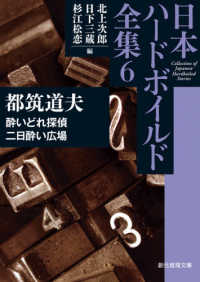Full Description
This wide-ranging volume offers a detailed exploration of coloniality in the discipline of linguistics, with case studies drawn from Africa, Southeast Asia, Europe, and the Caribbean. Colonial meanings and legacies have returned to the forefront of many academic fields in recent years and linguistics, like several other disciplines, has had an ambivalent relationship with its own histories of practice in colonial and postcolonial worlds. The implications of these histories are still felt today, as colonial paradigms of knowledge production continue to shape both academic linguistic practices and non-specialist discussion of language and culture. The chapters in this volume adopt a range of different conceptual frameworks - including postcolonial theory, southern theory, and decolonial thinking - to provide a nuanced account of the coloniality of linguistics at the level of knowledge and disciplinary practice; crucially, the contributors also expand their investigations beyond this ambivalent inheritance to imagine a decolonial linguistics. The volume will be of interest to all linguists looking to critically assess their own practices and to engage with debates at the cutting-edge of their discipline, particularly in the areas of sociolinguistics, field linguistics, typology, and linguistic anthropology, as well as to those outside the discipline engaging with questions of coloniality.
Contents
1: Ana Deumert and Anne Storch: Introduction: Colonial linguistics then and now
Part I: In the Midst
2: Sonal Kulkarni-Joshi and S. Imtiaz Hasnain: Northern perspectives on language and society in India
3: Rajend Mesthrie: Transcending the colonial? Colonial linguistics and George Grierson's Linguistic Survey of India
4: Christine Severo and Sinfree Makoni: Using lusitanization and creolization as frameworks to analyze historical and contemporary Cape Verde language policy and planning
5: Nick Faraclas: On colonization and 'awesome materiality'. A commentary
Part II: Echoes, Traces
6: Ingo H. Warnke: Tracing de-/colonial options in German Philology around 1900: The two faces of Hermann Paul (1846-1921)
7: Anette Hoffmann: War and grammar: Acoustic recordings with African prisoners of the First World War (1915-18)
8: Anne Storch: Accomplished works and facts. The family tree project of Africanistics
9: Raewyn Connell: Linguistics and language in the global economy of knowledge. A commentary
Part III: On the Poetics of Iconoclasm
10: Bettina Migge: Researching lesser-used endangered languages: Exploring field and documentary linguistics' perspectives on language research
11: Ana Deumert: The missionary in the theatre of linguistics: Or, is a decolonial linguistics possible?
12: Reem Bassiouney: Language ideology and policy in a colonial and postcolonial context: The case of Egypt
13: Ricardo Roque: The decolonizer iconoclast. A commentary
Part IV: Sounds of Resistance
14: Andrea Hollington: Jamaican postcolonial writing practices and metalinguistic discourses as a challenge to established norms and standards
15: Pegah Faghiri: Language ideologies and attitudes towards Arabic in contemporary Iran
16: Katharina Monz: Decolonizing decolonization? Desiring pure language in Mali
17: Christopher Stroud: Colonial creep
18: Salikoko S. Mufwene: Decolonial linguistics as paradigm shift. A commentary
Part V: On Decoloniality
19: Nick Shepherd: A grammar of decoloniality
20: Walter Mignolo: Walking decolonially with Nick Shepherd








